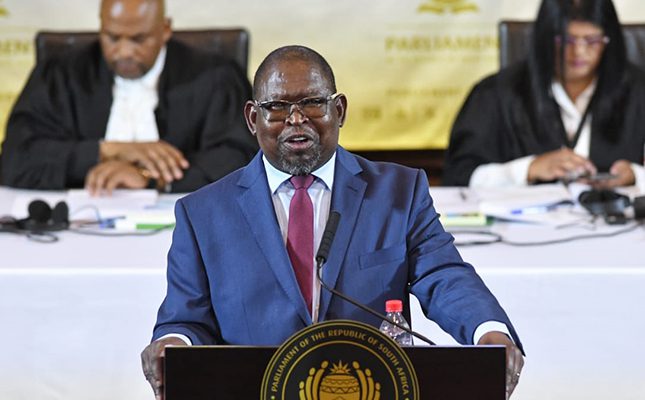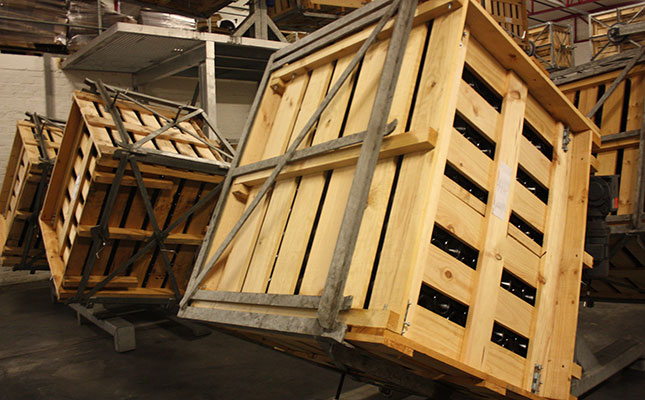
Photo: X | South African Government
As a result, Finance Minister Enoch Godongwana announced at the Budget Speech 2024 held yesterday that there would be increases in corporate and sin taxes to make up the tax shortfall. Government would also be dipping into gold and forex reserves to reduce debt.
Weak economic performance has led to a decrease of R56,1 billion in tax revenue, from last year’s estimate.
READ Budgeting basics: Every successful farm has one
This puts national tax revenue for the 2023/24 year at R1,73 trillion. Godongwana said that the shortfall was largely due to the decline in corporate profits and revenue from taxes on mining as industries struggled to function amid rolling blackouts and dysfunctional ports.
To ensure that multinational corporates don’t dodge taxes going forward, Godongwana announced that a global minimum corporate tax would be introduced.
Multinational corporations with annual revenue exceeding €750 million (about R15 billion) will be subject to an effective tax rate of at least 15%, regardless of where their profits are generated.
The proposed reform is expected to yield an additional R8 billion in corporate tax revenue in 2026/27.
The above inflation increases in sin taxes of 7,17% on wine, 7,17% on sparkling wine and 6,67% on brandy have incensed the wine industry, as this sector battled to remain afloat.
Christo Conradie, stakeholder engagement manager for South Africa Wine, said that this would inflict a further blow to many wine businesses and hamper the South African wine industry’s economic recovery.
“In a time when growth and recovery are desperately needed, various crises, including the energy crunch, disruptions at the Port of Cape Town, and increases in input costs, to name but a few, are worsening the financial position the industry is currently in.”
He noted that South Africa has a large and growing market for illicit alcohol, which provided consumers with access to more affordable alternatives, possibly with more associated harm.
“Historical data shows that despite continued above-inflationary excise increases, legal alcohol consumption in South Africa remains relatively flat while the illicit alcohol trade is growing.”
While there will be no increase in the fuel levy this year, Godongwana did announce an increase in the carbon fuel levy. A litre of petrol will now cost R0,11/ℓ more, with diesel rising by R0,14/ℓ as a result.
READ This is how carbon policies can prevent food insecurity
The agriculture sector has been exempt from paying carbon taxes so far, but with mounting global pressure to reduce carbon emissions, it comes as no surprise that Godongwana announced an increase in the carbon tax rate, from R159/t to R190/t of carbon dioxide equivalent.
He also noted that the proposal outlining the second phase of the carbon tax will be published later this year. Good news for South Africa’s embattled infrastructure is the R943,8 billion earmarked for upgrades.
This includes investments of R486,1 billion by state-owned companies and public entities, R213,8 billion from municipalities and R224,8 billion from provincial and national government.
In other good news for the industry, no increase in the Health Promotion Levy (‘sugar tax’) this year was expected, as no mention was made of it in the speech.
Andrew Russell, chairperson of the South African Cane Growers’ Association, said that an increase in the levy would be “destructive and unjustifiable”.
He pointed to independent research by the Bureau for Food and Agricultural Policy (BFAP) that showed that an increase or expansion of the levy would cost the sugar industry thousands of jobs and jeopardise the businesses of nearly 3 000 small-scale growers.












